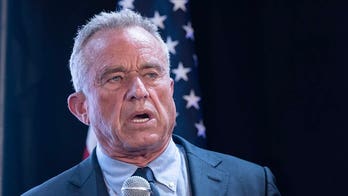A race for a U.S. House of Representatives seat from Hawaii typically wouldn't attract much national attention. However, a chance for Republicans to make a pickup in President Obama's native district will turn some heads.
Former Massachusetts Gov. Mitt Romney announced Monday that his PAC is endorsing the Republican candidate in the upcoming Hawaii special election, an example of a race with national implications that is suddenly tightening.
The Republican in the race is Honolulu City Councilman Charles Djou.
Romney called Djou a "fiscally responsible conservative" who can "focus on turning around our economy," but the 2008 presidential candidate is not the only heavyweight Republican throwing his clout and some money behind the local councilman. Minnesota Gov. Tim Pawlenty, a potential 2012 GOP presidential candidate, is also endorsing and contributing to Djou's campaign.
The race draws national attention because it is to replace Democrat Neil Abercrombie, who represents Hawaii's 1st Congressional District where Obama was born and raised. Abercrombie is stepping down to make a run to be Hawaii's next governor.
There are two Democrats in the race: former Rep. Ed Case and state Senate President Colleen Hanabusa. Most states hold separate party primaries or, in the case of special elections, state officials choose party candidates. However, in the case of Hawaii all three candidates will be on the ballot. Republicans are hoping Case and Hanabusa will split the Democratic vote, leaving the door open for Djou.
In another interesting quirk, the entire election will be held by mail, ending on May 22.
The polls aren't clearing anything up either:
In a poll conducted in January by local television station KITV, the survey showed Case in the lead with 37 percent, Hanabusa following with 25 percent and Djou in last place with with 17 percent. KITV surveyed 403 voters on Jan. 17. The poll had a margin of error of 5 percentage points.
However, an internal Democratic Congressional Campaign Committee poll published online last week by the Atlantic previews a much closer election. The DCCC poll showed Case and Djou tied with 32 percent each, and Hanabusa trailing with 27 percent. Nine percent were undecided.
The DCCC would not confirm details of the internal poll but spokesman Ryan Rudominer took a shot at Djou in an e-mail to Fox News.
"Our focus is making sure voters in Hawaii know about Djou's long record of supporting corporate special interests over the needs of families in Hawaii," he said.




